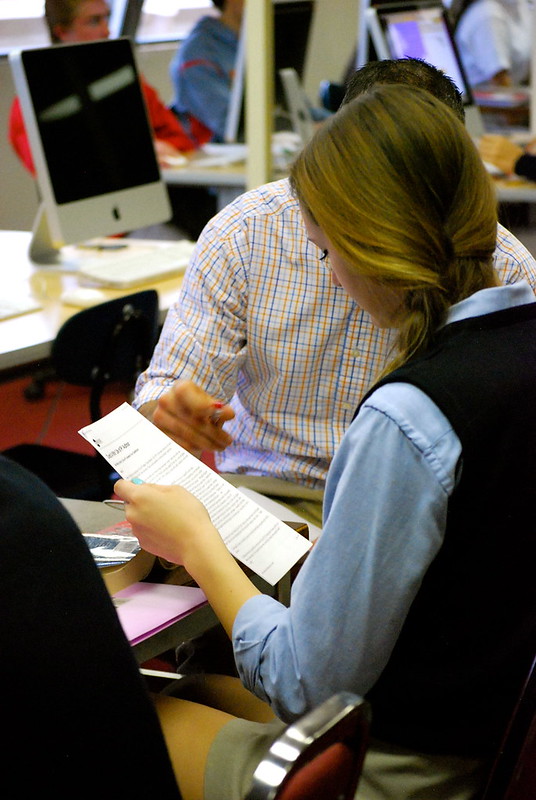 |
| Photo by Sarah Beth Anderson |
In the past I've told these colleagues that maybe the assignment wasn't clear enough or that perhaps they should treat this as a draft, as another step in the writing process, that surface errors are most likely related to performance – not competence. But a lot of times content area teachers don't plan on doing multiple drafts of a paper, and I sense that they walk away from our conversation even more convinced that student writing skills are on a gradual decline.
But I just came across a book that sheds more light on this. According to Lee Ann Carroll in Rehearsing New Roles: How College Students Develop as Writers, research shows that student writing appears to be weaker when they encounter new and unfamiliar expectations. Student writing develops because they must take on new and difficult roles in a discipline that they've probably never encountered before. It's reasonable to assume that students' new learning is creating all the cognitive load and that their early writing reflects this.
This all reminded me of the 1972 Donald Murray essay, "Teach Writing as a Process, Not Product." In the essay, Murray notes that since most English teachers were trained to analyze a product like a sonnet by Shakespeare and that they focus their critical attention on student writing as if it were a product. According to Murray, the problem with that approach is that a teacher's "attack does little more than confirm the student's lack of self-respect for their work and for themselves." Murray instead argues that teachers should "glory in the unfinishedness"of student writing.
So now when a colleague approaches me with the complaint that writing teachers like me aren't doing enough to prevent the next generation's slow slide into illiteracy, I've got another answer. Content area teachers might anticipate initially weaker writing as students deal with new concepts in unfamiliar disciplines – that's a sign that they're learning.
Then I'll advise them to make sure their assignments are clear and to build in some time for revision.